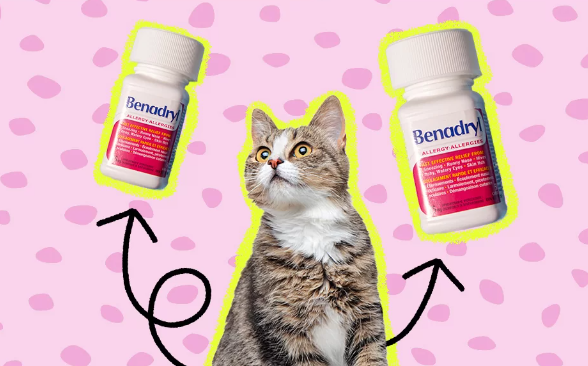Title: Understanding Benadryl for Cats: A Helpful Guide
As pet owners, we always want the best for our furry friends. When allergies or anxiety strikes, many wonder if human medications like Benadryl (diphenhydramine) can safely help their cats. This article explores the uses, dosage, and precautions of using Benadryl for your feline companions.
Understanding Benadryl and Its Uses
Benadryl is an antihistamine commonly used to relieve allergy symptoms in humans, such as sneezing, itching, and hives. For cats, it can be effective in treating allergy-related symptoms and as a mild sedative, especially in stressful situations like travel or visits to the vet. However, it’s crucial to consult with a veterinarian before administering Benadryl, as they can provide guidance tailored to your cat’s specific needs and health status.
Dosage and Administration
Determining the right dosage of Benadryl for your cat is essential to ensure safety and effectiveness. Generally, the typical dosage of Benadryl for cats is about 1 milligram per pound of body weight, administered every 8-12 hours. It’s important to use only the plain formulation, as flavored versions often contain xylitol or other ingredients that can be toxic to cats. Always double-check with your vet before giving any medication to confirm the right dosage and to rule out any potential side effects or interactions with other medications your cat may be taking.
Precautions and Side Effects
While Benadryl can be beneficial, it’s not suitable for every cat. Cats with certain pre-existing conditions, such as glaucoma, high blood pressure, or pregnant or nursing females, should avoid Benadryl. Side effects can include drowsiness, dry mouth, or gastrointestinal upset. If you notice any unusual behavior or symptoms after administering Benadryl, it’s vital to contact your veterinarian immediately. Remember, safety is the top priority when it comes to your pet’s health, so always err on the side of caution.
Conclusion
In summary, Benadryl can be a helpful option for treating allergies and anxiety in cats, but it should always be used under veterinary guidance. If you suspect your cat is suffering from allergies or stress-related issues, don’t hesitate to contact your veterinarian for the best course of action. Your furry friend deserves the best care possible, so stay informed and proactive about their health.




